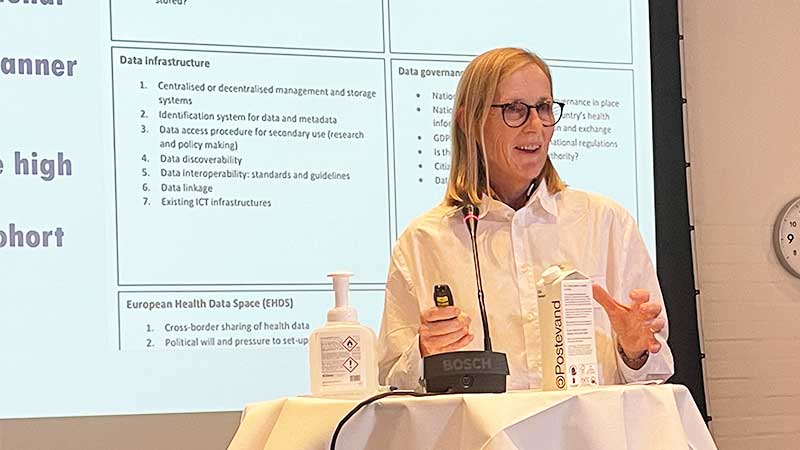Denmark must take the European lead in healthcare data

Denmark must contribute with recommendations to a future joint European health data center. Danish Life Science Cluster is involved in this effort, and this is an advantage for the life science cluster’s 300 members, who will have the opportunity to influence future legislation on the use of European health data through strong collaboration.
Denmark must have as much impact as possible on the legislation of the future European Health Data Space.
Therefore, the Central Denmark Region has assumed the role of authority in a project that will deliver recommendations for optimizing the bill that the EU Commission has just proposed.
In the project Towards a European Health Data Space (TEHDAS), Region Midtjylland collaborates closely with CDEU – Central Denmark EU-Office and Danish Life Science Cluster.
Since the 3rd of May, TEHDAS has been running concurrently with the drafting of the bill, and the EU Commission has already drawn lessons from the initiative. TEHDAS will continue until the European Health Data Space’s final bill is implemented in 2023.
Developing common principles
Gitte Kjeldsen, Program Manager, from Danish Life Science Cluster participates in Towards a European Health Data Space:
– TEHDAS is a desk exercise in which we must learn about the requirements and demands that make it possible to share health data for research and development across national borders. The task in TEHDAS is therefore to develop a number of European principles for the secondary use of health data, Gitte Kjeldsen explains.
Denmark takes the lead in the European context
Maria Heilskou Pedersen, EU specialist consultant at Region Central Jutland’s EU office, contributes to the close collaboration between Region Central Jutland and Danish Life Science Cluster. She resides in Brussels, where she is closely familiar with the process towards creating a common European health data space.
– Denmark is one of the European countries that is most advanced in the use of secondary health data. It is therefore important that we bring our experience into play and have as much influence as possible on future legislation in the area. The TEHDAS project is an obvious platform where we can position ourselves as a leading nation and demonstrate our best practices, Maria Heilskou Pedersen explains.
The Life Science cluster focuses on both advantages and disadvantages
In TEHDAS, 25 countries offer their experiences in working with health data.
The Central Denmark Region oversees the project, and Danish Life Science Cluster is involved via the close partnership with Region Central Jutland.
More than 25 public and private Danish organizations are involved, including the Danish Ministry of Health, the Danish Health Authority, and patient associations.
There is still skepticism in the population
Danish Life Science Cluster also represents 300 health stakeholders. Kenneth Forsstrøm Jensen, Board member and Strategic Market Access Manager at Roche, is pleased that both private and public players can influence the future European data collaboration in this way.
– There is still some skepticism in sharing data in the population. We must always keep that in mind and be respectful about it. We must therefore remember to say that the purpose of sharing data is to ensure better solutions for the citizen/patient. Therefore, we must find a model for how citizens themselves can decide whether their data may be shared across national borders, and we must develop a secure model for sharing which ensures the patient’s/citizen’s rights and requirements for data protection, Kenneth Forsstrøm Jensen says.
Danish Life Science Cluster is part of the National Partnership for Health Data, where the focus is on better utilization of Danish health data as well as advantages and barriers.
– Therefore, it is evident that Danish Life Science Cluster plays a central role in collecting recommendations to the establishment of the European Health Data Space, Kenneth Forsstrøm Jensen says.
Denmark has the infrastructure and skills
This autumn, a pilot project will start to test the upcoming European Health Data Space in practice, such as using the same application process and metadata catalog across the countries. The EU Commission is currently selecting three research examples from a total of nine proposals to be included in the project. In contrast to most other European countries, Denmark has the infrastructure and skills to participate in all the proposed projects.
– During the development of these projects, we have been able to see the great differences in the countries’ capacity within data. Although we have a lot of work ahead of us here in Denmark, we are on the path to a sustainable healthcare system that can take the lead in developing the regulatory framework for the future use of health data across borders in Europe, Gitte Kjeldsen says.
